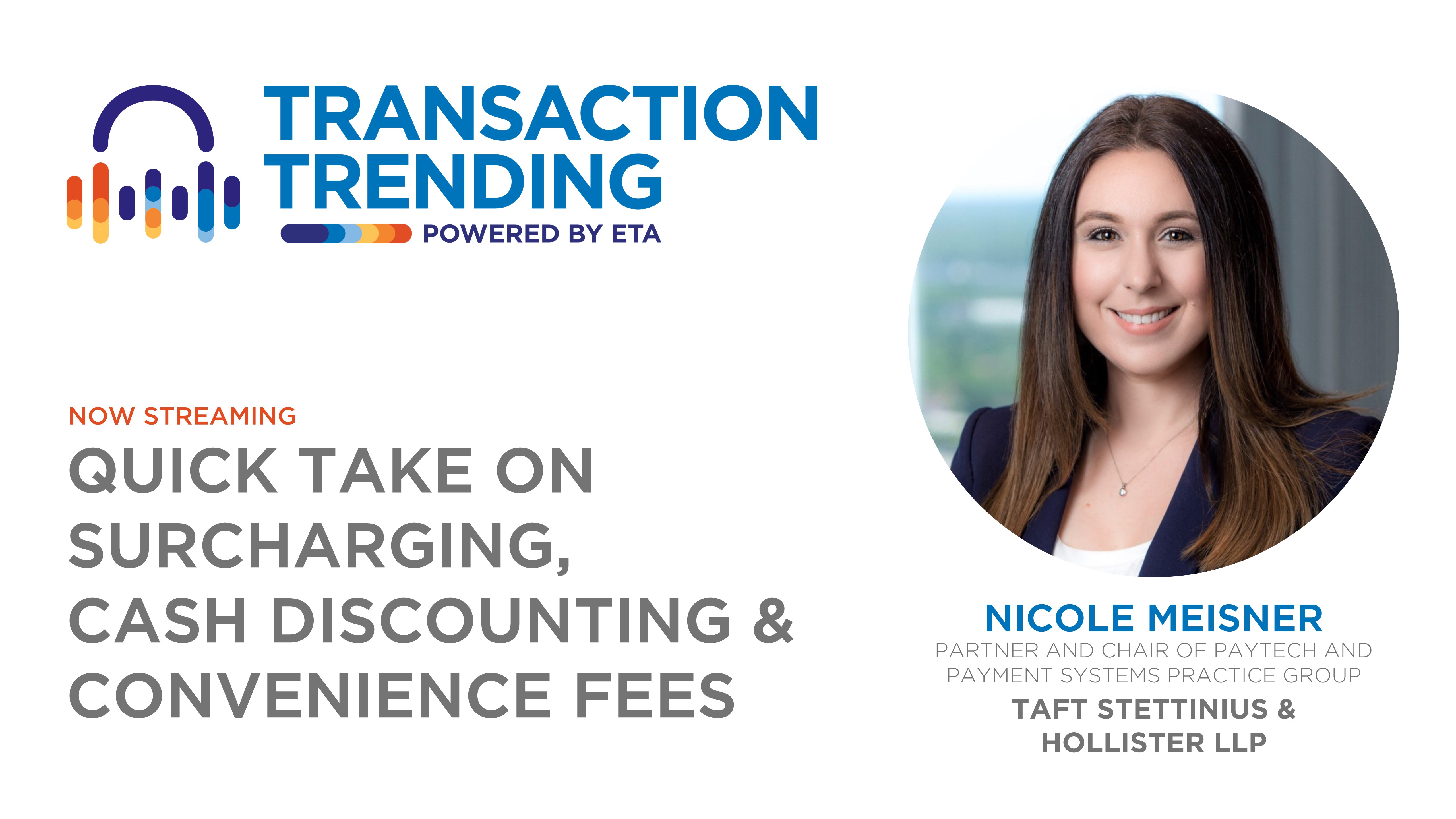Transaction Trending: Quick Take on Surcharging, Cash Discounting & Convenience Fees

This is a summary of a conversation with Nicole Meisner, a Partner at Taft who serves as the Chair of PayTech and Payment Systems Practice Group within the firm. Nicole provides valuable insights into the complex world of payment processing, where merchants have various options for managing transaction costs. Three key concepts often come into play: surcharges, cash discounts, and convenience fees. Let’s break down these terms and explore the regulatory landscape surrounding them.
Defining the Terms
Surcharge: A fee charged to customers for using a credit card to pay for goods or services.
Cash Discount: A reduction in price offered to customers who choose to pay with methods other than credit cards.
Convenience Fee: A fixed fee charged for the ability to pay through an alternative payment channel, such as an online platform.
Regulatory Framework
Federal Level: While there are no specific federal laws governing surcharges, other regulations like unfair and deceptive trade practices can come into play. The Federal Trade Commission (FTC) and Consumer Financial Protection Bureau (CFPB) are also scrutinizing “junk fees,” though it’s unclear if surcharges fall under this category.
State Level: States play a significant role in regulating these practices. Most states do not prohibit surcharging, but a handful still prohibit it. Some states have shifted from prohibition to regulation, imposing requirements on signage, disclosures, and fee caps.
Card Network Rules: Card networks like Visa and Mastercard have their own rules for surcharging, including notification requirements, signage specifications, and limits on fee amounts. However, state laws always take precedence over card network rules.
Compliance Pitfalls
Merchants and payment providers should be cautious of several common compliance issues:
- Confusing different fee programs or merging aspects of surcharging, cash discounts, and convenience fees.
- Applying surcharges to debit transactions.
- Charging surcharges in jurisdictions where it’s prohibited.
- Exceeding allowed surcharge amounts.
- Implementing variable convenience fees instead of fixed amounts.
As the regulatory environment continues to evolve, staying informed and adaptable is key to maintaining a compliant and effective payment strategy. Nicole Meisner’s expertise sheds light on these intricate issues, helping merchants and payment providers navigate the complex landscape of fee-shifting in payment processing.
Readers can hear the entire interview with Nicole Meisner here. The full conversation provides even more in-depth insights and practical advice for those looking to implement or improve their payment fee strategies while staying compliant with relevant laws and regulations.
Legal Disclaimer
The information provided in this blog post is for general informational purposes only and does not constitute legal advice. This content is based on a conversation with Nicole Meisner and reflects her professional opinions and interpretations as of the date of the interview. Laws, regulations, and card network rules regarding payment processing fees are subject to change. Readers should not act or refrain from acting based on this information without seeking professional legal counsel. Neither the author, Nicole Meisner, Taft, nor any affiliated entities assume any liability for actions taken or not taken based on the contents of this blog post.

